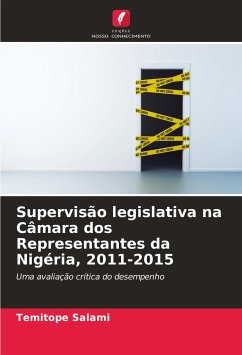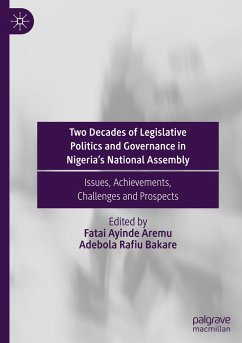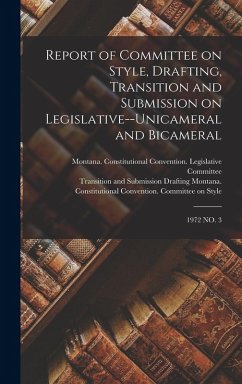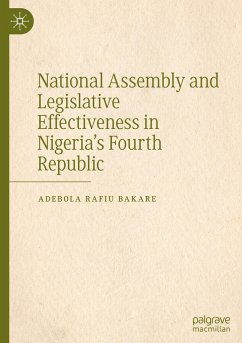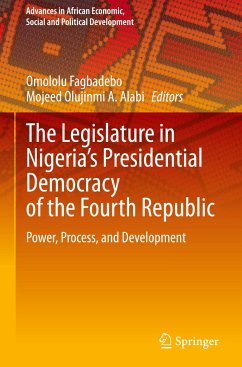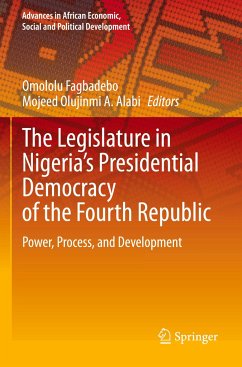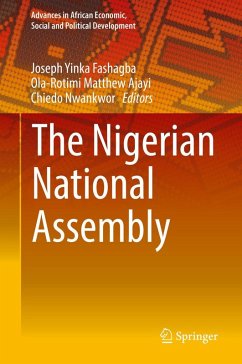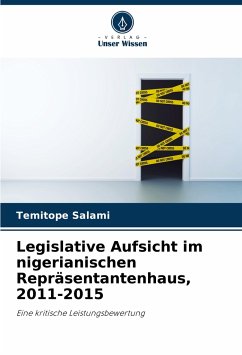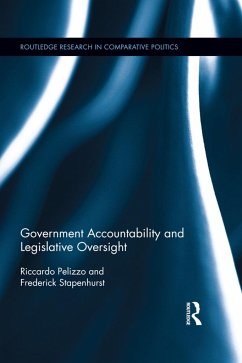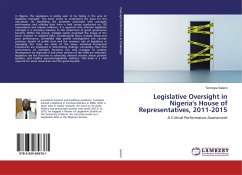
Legislative Oversight in Nigeria's House of Representatives, 2011-2015
A Critical Performance Assessment
Versandkostenfrei!
Versandfertig in 6-10 Tagen
33,99 €
inkl. MwSt.

PAYBACK Punkte
17 °P sammeln!
In Nigeria, the Legislature is widely seen to be failing in the area of legislative oversight. This book strives to understand the basis for this reputation. By identifying the problems associated with oversight performance and utilizing data from a field survey conducted on 120 respondents and copious evidence, it is apparent that effective legislative oversight is a necessary measure to the attainment of good governance benefits. Within the period, multiple events projected the image of the lower chamber in negative light. Constitutional issues, budget delays and poor performance, unresolved...
In Nigeria, the Legislature is widely seen to be failing in the area of legislative oversight. This book strives to understand the basis for this reputation. By identifying the problems associated with oversight performance and utilizing data from a field survey conducted on 120 respondents and copious evidence, it is apparent that effective legislative oversight is a necessary measure to the attainment of good governance benefits. Within the period, multiple events projected the image of the lower chamber in negative light. Constitutional issues, budget delays and poor performance, unresolved high profile investigations into corrupt practices, breach of public trust and the unsavory role of legislators in managing the crises are some of the issues examined. Conceptual frameworks are employed in determining findings, concluding thus that performance of oversight functions can only translate to positive development for Nigerians if and when sections of the CFRN are amended, legislators see the incentive in advancing national interest above partisan loyalties, and healthy executive-legislative relations. This book is a vital resource for social researchers and the general public.



